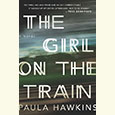Carriers, War Birds, and Pilots
Gregory G. Fletcher recreates his father’s experiences before, during, and after the crucial WWII battle that sank the Musashi
After Pearl Harbor, the Pacific was a Japanese lake until the American war machine recovered and caught up. In Intrepid Aviators, Memphis attorney Gregory G. Fletcher picks up the story in 1943 with the training of men who would pilot the carrier-based fighters, dive bombers, and torpedo bombers that pushed Japanese ships and planes back across the Pacific. Air Group 18, based on the carrier Intrepid, began to see action in the summer of 1944. By fall, much of it was in and around the Philippine archipelago, which the Japanese had invaded two years earlier. General MacArthur vowed to return, but returning was possible only if Japanese naval dominance could be broken.
The Japanese were relying on a decisive naval victory to force the Americans and their allies to accept the reality of Japan’s empire. They gathered the central core of their large fleet and headed toward the Philippines. What followed was a mammoth battle between American carrier planes and Japanese surface warships, including the mighty Musashi and her sister ship Yamato, two huge battleships, much bigger than anything in the American fleet and the pride of the Japanese nation.
Will Fletcher, the author’s father, launched one of the torpedoes that hit the Musashi and had his plane shot out from under him. His two-man crew perished, but he managed to survive, just barely, by swimming many miles to reach a tiny, uninhabited atoll, building a bamboo raft, and paddling out to where Filipino resistance fighters picked him up and took him in.
 Gregory Fletcher’s narration skillfully blends the memories of the participants who survived, including his own father, and the diaries and official reports of others. While the history of the Pacific war has been extensively documented, Fletcher, a retired Navy flight instructor and a law school graduate of the University of Tennessee in Knoxville, contributes fresh details of shipboard life, his intimate understanding of military strategy bringing into fresh focus the skill and training required of everyone on the carrier. Air Group 18 was not a loose swarm of independent daredevils; they were a disciplined team capable of carrying out carefully choreographed operations.
Gregory Fletcher’s narration skillfully blends the memories of the participants who survived, including his own father, and the diaries and official reports of others. While the history of the Pacific war has been extensively documented, Fletcher, a retired Navy flight instructor and a law school graduate of the University of Tennessee in Knoxville, contributes fresh details of shipboard life, his intimate understanding of military strategy bringing into fresh focus the skill and training required of everyone on the carrier. Air Group 18 was not a loose swarm of independent daredevils; they were a disciplined team capable of carrying out carefully choreographed operations.
The reader can also infer from Fletcher’s narrative the incredible organization and engineering required to support aerial warfare. It’s mind-boggling to consider the national commitment and productivity that made the whole conflict possible. Innumerable planes and ships were lost and quickly replaced. And he reminds us again of the huge human losses suffered by both sides—hundreds, even thousands, of lives in a single engagement, dwarfing the casualty figures of contemporary wars.
Intrepid Aviators stands out from more standard historical treatments of World War II because Fletcher allows himself to enter his characters’ points of view, describing what they saw around them and what they probably felt: “Will couldn’t resist glancing up the line past Skelly’s airplane,” he writes. “The picture thrilled him. … The Avengers seemed to Will the embodiment of modern airpower, the very image of American military strength and lethality.” With adequate maps, a center section of photographs, extensive source notes, and exemplary editing, this book is an impressive production.


